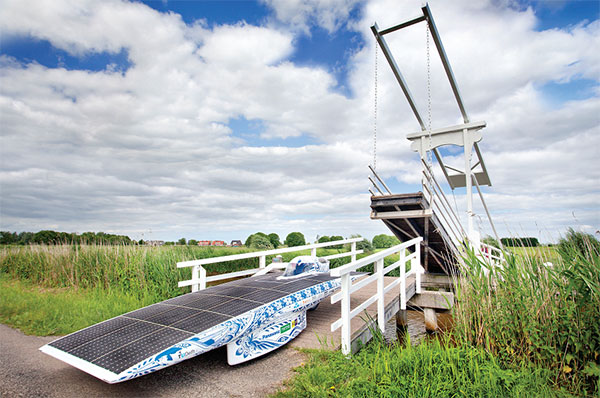Dutch companies to help Vietnam reach a sustainable future
 |
What is the purpose of your visit to Vietnam and what potential do Dutch companies see here?
Dating back to 1632, when the Dutch established a trading post in Hoi An and soon afterwards in Pho Hien, trade has been one of the cornerstones of the excellent relations between our two countries. Today, the Netherlands considers Vietnam an invaluable trading partner, with its impressive economic growth rates, growing middle-class, and rising living standards.
Our visit to Vietnam comes at an opportune time. Vietnam continues to develop into a middle-income country and is increasingly valuing productivity and innovation. Furthermore, public and political attention on the consequences of climate change in Vietnam has never been higher. This offers opportunities for the innovative and high-tech Dutch business sector.
Following the recent establishment of a new cabinet in Vietnam, this is a timely opportunity to meet with my counterparts to discuss ways of strengthening our bilateral ties. It is therefore a great privilege for me to lead this business delegation to Vietnam and to promote Dutch innovation, trade, and development, to the mutual benefit of both Vietnam and the Netherlands.
In which fields do the visiting companies operate?
The Dutch delegation represents 35 companies and knowledge institutes from a wide range of sectors, including aviation, agri-food, renewable energy, and maritime infrastructure. Among them are renowned and internationally-established companies such as Damen Shipyards, Royal Boskalis, and Royal HaskoningDHV, as well as mid-sized companies that have started eyeing Vietnam as a potential market and investment destination.
 |
| Co-operation between Dutch and Vietnamese companies will further sustainable development in high-tech and environmentally-friendly fields |
What are the areas you would suggest for co-operation between Dutch companies and Vietnam?
The Netherlands is the second-largest EU trade partner of Vietnam, and cumulatively the largest EU investor in Vietnam (2015). Last year the Vietnamese imported $691 million of goods and services from the Netherlands, and exported a total value of $4.7 billion to the Netherlands.
Over the past decades, Vietnam has made huge economic strides forward, achieving an average growth of 7 per cent, while also enjoying spectacular success in poverty reduction. As Vietnam continues to develop into a middle-income country, the importance of increased productivity and innovation becomes more apparent. These developments offer opportunities for Dutch solutions, as the strength of the Dutch business sector lies in innovation and technology.
The Netherlands is the world’s second-largest agricultural exporter because of that innovation and technology, and we are therefore well-placed to work with Vietnam on adding value to its agricultural export products. Other evident topics for co-operation, in which the Netherlands has very relevant and innovative expertise, are climate change adaptation and water management. These issues are increasingly high on the political and social agenda in Vietnam. Our countries share knowledge intensively, as we did for instance in the development of the Mekong Delta Plan, a long-term vision for the sustainable development of the Mekong Delta.
Dutch private parties and knowledge institutes are also well-equipped to help Vietnam tackle issues like wastewater management and coastal erosion, with state-of-the-art but affordable solutions. The exchange of Dutch expertise is enshrined in our strategic partnership with Vietnam in water management and climate change adaptation since 2010, and in sustainable agriculture and food security since 2014.
| Business Delegation |
| Dutch Aviation Vietnam Cluster - Amsterdam University of Applied Siences - Ciconia Aviation Services - MovingDot - NACO (Netherlands Airport Consultants) - Royal HaskoningDHV Vietnam - Stratagem Strategic Research - Vanderlande |
What is needed to increase trade and investment in Vietnam, and how can the Dutch contribute?
The Dutch believe that creating an environment in which businesses can thrive is elementary to economic development. We are convinced that the rule of law, good governance, and respect for human rights make a country economically more attractive, and help to attract foreign direct investment. Our approach is furthermore to ensure that the whole society benefits equitably from economic growth – in other words, that growth is inclusive – and that the development happens in a sustainable way, environmentally and otherwise. The EU-Vietnam Free Trade Agreement includes these provisions, and will promote sustainable development and growth for both sides.
The Embassy of the Netherlands in Hanoi and the Consulate General in Ho Chi Minh City are actively promoting sustainability. Last year, they launched the Tomorrow is Green campaign, a platform for sustainable business solutions in Vietnam. We are connecting Dutch and Vietnamese governments, companies, and academics, to be sustainable and keep this planet in good shape for ourselves and for future generations.
How will this visit help in pushing the realisation of these goals?
Our visit to Vietnam will showcase once again that the Netherlands possesses experience, expertise, and technology that can help a middle-income country like Vietnam to catalyse sustainable and inclusive development. The Netherlands has expertise, transferable skills, and financial instruments available to help Vietnamese businesses and to further develop the business climate. This approach is based on mutual benefits, as it allows both of our nations to trade on a higher level.
This visit will further build on a foundation of almost 400 years of trade relations, always with an eye on the future. I am proud to be here in Vietnam, to build together towards this future of free trade, sustainable development, and innovative, climate-smart solutions.
What the stars mean:
★ Poor ★ ★ Promising ★★★ Good ★★★★ Very good ★★★★★ Exceptional
Latest News
More News
- Vietnamese businesses diversify amid global trade shifts (February 03, 2026 | 17:18)
- Consumer finance sector posts sharp profit growth (February 03, 2026 | 13:05)
- Vietnam and US to launch sixth trade negotiation round (January 30, 2026 | 15:19)
- NAB Innovation Centre underscores Vietnam’s appeal for tech investment (January 30, 2026 | 11:16)
- Vietnam moves towards market-based fuel management with E10 rollout (January 30, 2026 | 11:10)
- Vietnam startup funding enters a period of capital reset (January 30, 2026 | 11:06)
- Vietnam strengthens public debt management with World Bank and IMF (January 30, 2026 | 11:00)
- PM inspects APEC 2027 project progress in An Giang province (January 29, 2026 | 09:00)
- Vietnam among the world’s top 15 trading nations (January 28, 2026 | 17:12)
- Vietnam accelerates preparations for arbitration centre linked to new financial hub (January 28, 2026 | 17:09)
















 Mobile Version
Mobile Version